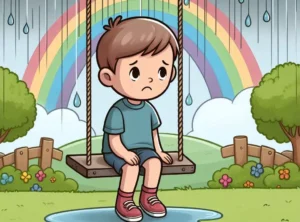10 Invalidating Phrases That Dismiss a Child’s Feelings
Understanding and validating a child’s emotions is crucial
for their emotional development and well-being.
Children are learning how to navigate their feelings
and the world around them, and parents play
a key role in guiding them through this process.
Unfortunately, some common phrases can inadvertently dismiss
or invalidate a child’s feelings,
making them feel misunderstood or unimportant.
Here are ten phrases to avoid and alternatives
to use that support and validate your child’s emotions:
1. “You’re overreacting.”
When a child is upset, telling them they’re overreacting
can make them feel their emotions are unjustified.
Instead, acknowledge their feelings with, “I can see you’re really upset. Let’s talk about what’s bothering you.”
2. “It’s not a big deal.”
Minimizing a child’s concerns with this phrase can make
them feel their feelings don’t matter.
Try saying, “I understand this is important to you. Let’s work through it together.”
3. “Don’t cry, it’s not that bad.”
Telling a child not to cry can make them feel embarrassed
or ashamed of their emotions.
Offer comfort by saying, “It’s okay to cry. I’m here for you, and we’ll figure this out together.”
4. “Just get over it.”
This phrase can come across as dismissive and uncaring.
Instead, offer support with, “I know this is hard right now, but we’ll find a way to handle it together.”
5. “You’ll be fine.”
While meant to reassure, this phrase can feel dismissive.
Try validating their feelings with, “I understand this feels tough. Let’s find a way to make it better.”
6. “Others have it worse.”
Comparing a child’s struggles to others’
can invalidate their experience.
Instead, empathize with, “I see this is really hard for you. Let’s talk about what we can do to help.”
7. “You’re being too sensitive.”
Labeling a child as overly sensitive can discourage them
from expressing their feelings.
Validate their emotions with, “Your feelings are important. Let’s talk about what’s making you feel this way.”
8. “I told you so.”
Using this phrase after a child has faced a consequence
can make them feel blamed and unsupported.
Offer guidance with, “Let’s think about what we can learn from this situation and how we can handle it better next time.”
9. “You’re making a fuss over nothing.”
Dismissing a child’s feelings as insignificant
can erode their trust in expressing themselves.
Instead, acknowledge their experience with, “I understand why you’re upset. Let’s see how we can work through this together.”
10. “You shouldn’t feel that way.”
Telling a child how they should
or shouldn’t feel can invalidate their emotions.
Validate their feelings with, “It’s okay to feel this way. Let’s talk about what’s going on and how we can address it.”
Conclusion
Validating a child’s feelings is an essential aspect of nurturing
their emotional health and building a strong, supportive relationship.
By avoiding phrases that dismiss their emotions
and replacing them with supportive and empathetic responses,
you can help your child feel understood and valued.
Remember, your response to their feelings can greatly impact
their ability to handle emotions and navigate challenges effectively.






